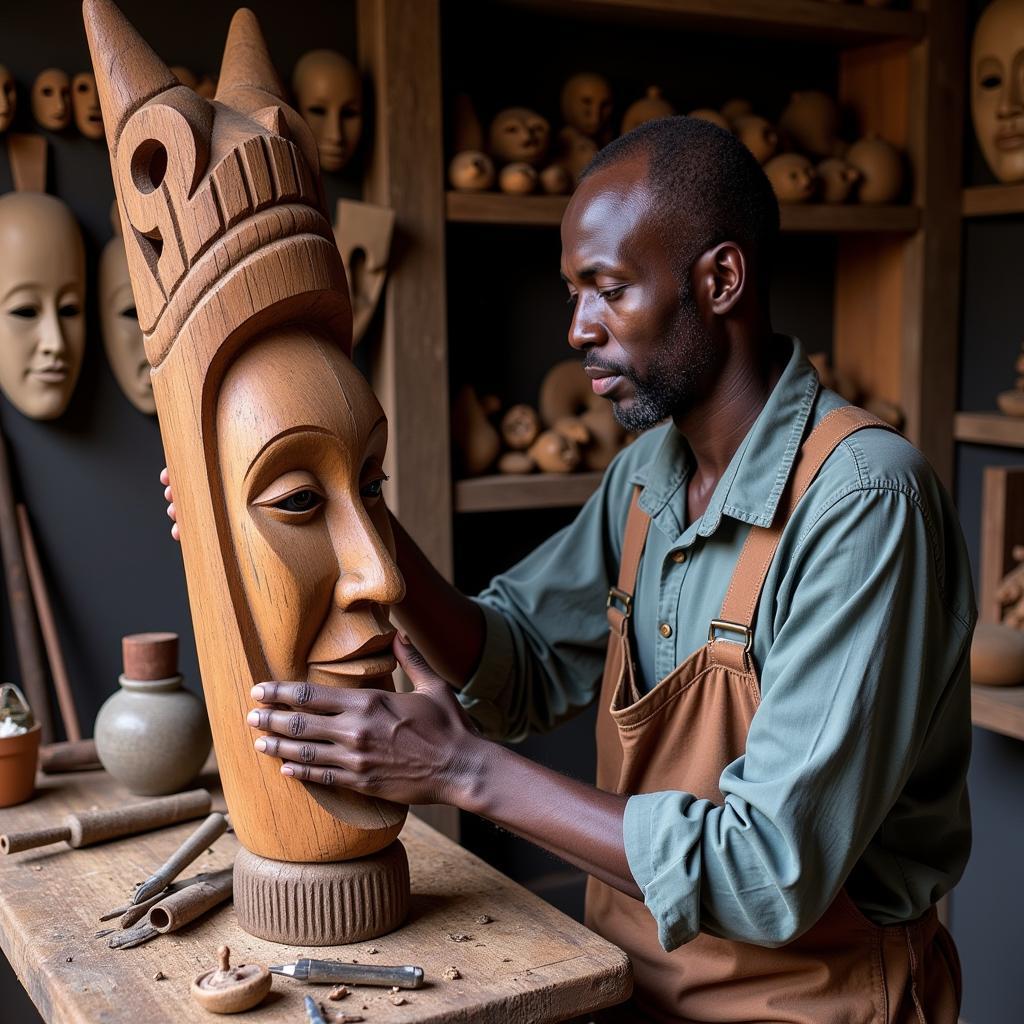Exploring North African Capitals: A Journey Through History and Culture
North African Capitals are vibrant hubs of culture, history, and political influence. These cities, located at the crossroads of the Mediterranean and the Sahara, offer a unique blend of ancient traditions and modern advancements. From bustling markets to historical landmarks, they showcase the rich tapestry of North African heritage.
Understanding the significance of these North African capitals requires delving into their past. Many were founded centuries ago, serving as crucial centers of trade, scholarship, and governance. Their strategic location has shaped their identity, attracting diverse populations and leading to the fusion of cultures that define them today. For example, Rabat, the capital of Morocco, boasts a rich history dating back to the 12th century.
Unveiling the Gems: A Closer Look at North African Capital Cities
Each North African capital possesses a unique character, shaped by its history and geography. Let’s explore some of the most prominent ones:
Rabat: Morocco’s Coastal Jewel
Rabat, Morocco’s capital, offers a captivating blend of ancient history and modern development. Its coastal location has played a significant role in its evolution, making it a hub of trade and cultural exchange. The city’s landmarks, such as the Kasbah of the Udayas and the Hassan Tower, reflect its rich past.
Algiers: Algeria’s Mediterranean Metropolis
Algiers, the capital of Algeria, is a bustling metropolis nestled along the Mediterranean coast. This vibrant city, known as the “White City,” is characterized by its stunning architecture, a blend of Ottoman and French colonial influences. Its Casbah, a UNESCO World Heritage site, is a labyrinth of narrow streets and historic buildings. Algeria also boasts breathtaking Mediterranean beaches. Check out interesting facts about African beaches.
Tunis: Tunisia’s Coastal Crossroads
Tunis, the capital of Tunisia, is strategically located on the Mediterranean coast. This vibrant city has served as a crossroads of civilizations for centuries, influenced by Carthaginian, Roman, Arab, and Ottoman empires. The Medina of Tunis, a UNESCO World Heritage site, is a testament to its rich history. Tunisia shares a Mediterranean coastline with several other African nations. You can learn more about African countries with a Mediterranean coastline.
Cairo: Egypt’s Ancient Metropolis
While not strictly North African, Cairo, the capital of Egypt, plays a vital role in the region’s politics and culture. This sprawling metropolis, situated on the banks of the Nile River, boasts a history that spans thousands of years. Its iconic pyramids and ancient monuments attract visitors from around the globe. The population of Egypt contributes significantly to the overall demographic landscape of the continent. Find more information on African countries and their population.
You may also be interested in the growing aviation industry across the continent. Here’s an insightful report on African airlines.
What Makes a North African Capital Unique?
Several factors contribute to the distinctive character of North African capitals:
- Geographic Location: Their proximity to the Mediterranean Sea and the Sahara Desert has shaped their climate, culture, and trade.
- Historical Influences: From ancient empires to colonial powers, their history has left an indelible mark on their architecture, language, and traditions.
- Cultural Diversity: These cities have long been melting pots of different cultures, resulting in unique blends of traditions and customs.
- Political Importance: As centers of government and political activity, they play a vital role in shaping the future of their respective nations.
“North African capitals are living museums, offering a glimpse into the past while embracing the future,” says Dr. Amina Ben Salah, a renowned historian specializing in North African studies. These cities offer a captivating blend of historical significance and modern dynamism.
Why Visit a North African Capital?
Visiting a North African capital offers a unique travel experience. These cities provide a rich blend of cultural immersion, historical exploration, and modern amenities. “Experiencing the vibrant energy of a North African capital firsthand is an unforgettable journey,” adds Dr. Fatima El-Ouazzani, an anthropologist specializing in North African cultures.
Conclusion
North African capitals offer a captivating journey through history and culture. These vibrant cities, shaped by their unique geographic location and rich historical influences, provide an unforgettable experience for travelers. From the bustling markets of Marrakech to the ancient ruins of Carthage, North Africa’s capitals offer a glimpse into a world of wonder and intrigue.
FAQ
-
What is the largest North African capital? Cairo is generally considered the largest.
-
What is the oldest North African capital? Tunis is one of the oldest, with roots dating back to ancient times.
-
Are North African capitals safe to visit? Like any major city, it’s important to be aware of your surroundings and take necessary precautions.
-
What is the best time to visit a North African capital? The shoulder seasons (spring and autumn) are generally considered the best times to visit.
-
What languages are spoken in North African capitals? Arabic is the primary language, but French is also widely spoken.
Are you fascinated by the diversity of African countries? You can even learn the African countries name in Hindi.
For assistance, contact us at +255768904061, [email protected], or visit us in Mbarali DC Mawindi, Kangaga, Tanzania. We have a 24/7 customer service team.


